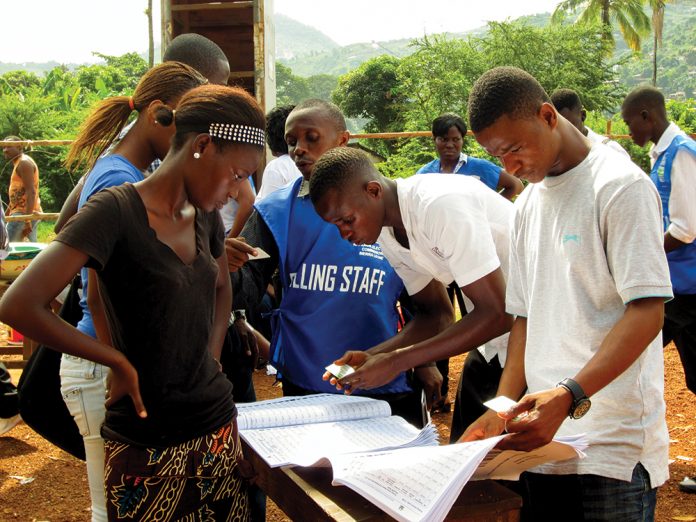First-Past-the-Post and Proportional Representation are both electoral systems and/or methods used to elect representatives during elections into power. They both serve in the best interest of the people but wherein the former (first-past-the-post) matters for individual candidates contesting polls on constituency basis, the latter (proportional representation) wholesomely rests on political parties drawing up a preferential party list for election (list system). Both voting systems are applicable in different countries around the world based on territorial vastness and/or other given considerations. In Sierra Leone, however, the nature of our governance system has refined what used to be a parliamentary set-up.
With the afore-stated premise, history owes the readership of this piece an understanding of these two electoral forms applied in the voting system of our country (Sierra Leone), since the inception of multi-party representation in the mid-90s.
At the height of the civil war and strife in Salone, that saw the lives of people (young and old) crumble in the streets of Freetown and beyond for a sustained period of eleven years (1991-2002), the state of affairs in the country did not permit for first-past-the-post system. This was due to the frail security situation where some parts of the country where in rebel hands and so it was not possible for constituency representation. Instead, the political leaders applied the PR system.
So, yes, it was impossible and ill-advised for the country to be plotted into small constituency units, wherein each of these units are represented at national level. Hence the PR system became viable over first-past-the-post in the 1996 and 2002 general elections in Sierra Leone. The August 2007 general elections, the third in the country in a multiparty context, and after the 2002 declaration of peace by Predident Ahmad Tejan Kabbah, saw a return of first-past-the-post which the opposition All People’s Congress, under former President Ernest Bai Koroma, won.
The APC garnered 59 parliamentary seats and the main opposition, the Sierra Leone People’s Party won 43 seats down from 83. The PMDC won the remaining 10 seats. In all 16 women were elected. The 2012 and 2018 general elections have similarly been conducted.
In my view, Sierra Leone is convenient with first-past-the-post as it guarantees direct MP representation in Parliament and on a constituency basis over the vagueness of Proportional Representation where people are lobbed into regions and therefore not sure who their local representatives are. This has been the main problem with PR system
Now a practice; now in congruence; now a trait of our democracy, the first-past-the-post system is the unavoidable go-to for contesting polls in Sierra Leone, and I am indulged with the notion that it will be more viable over proportional representation in the imminent 2023 general elections in the country, given the means at hand and our national circumstances.
